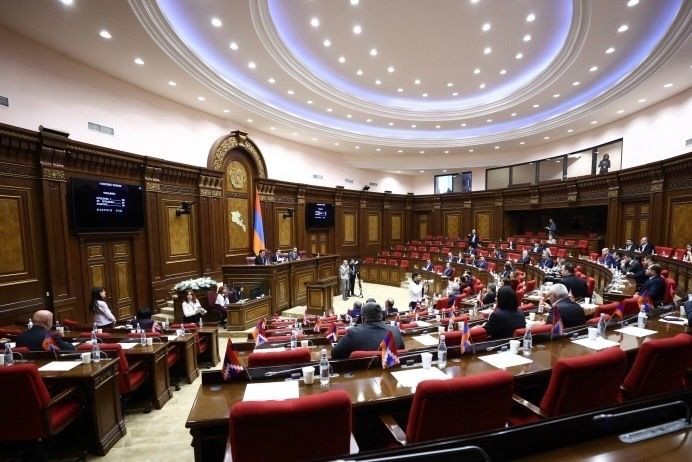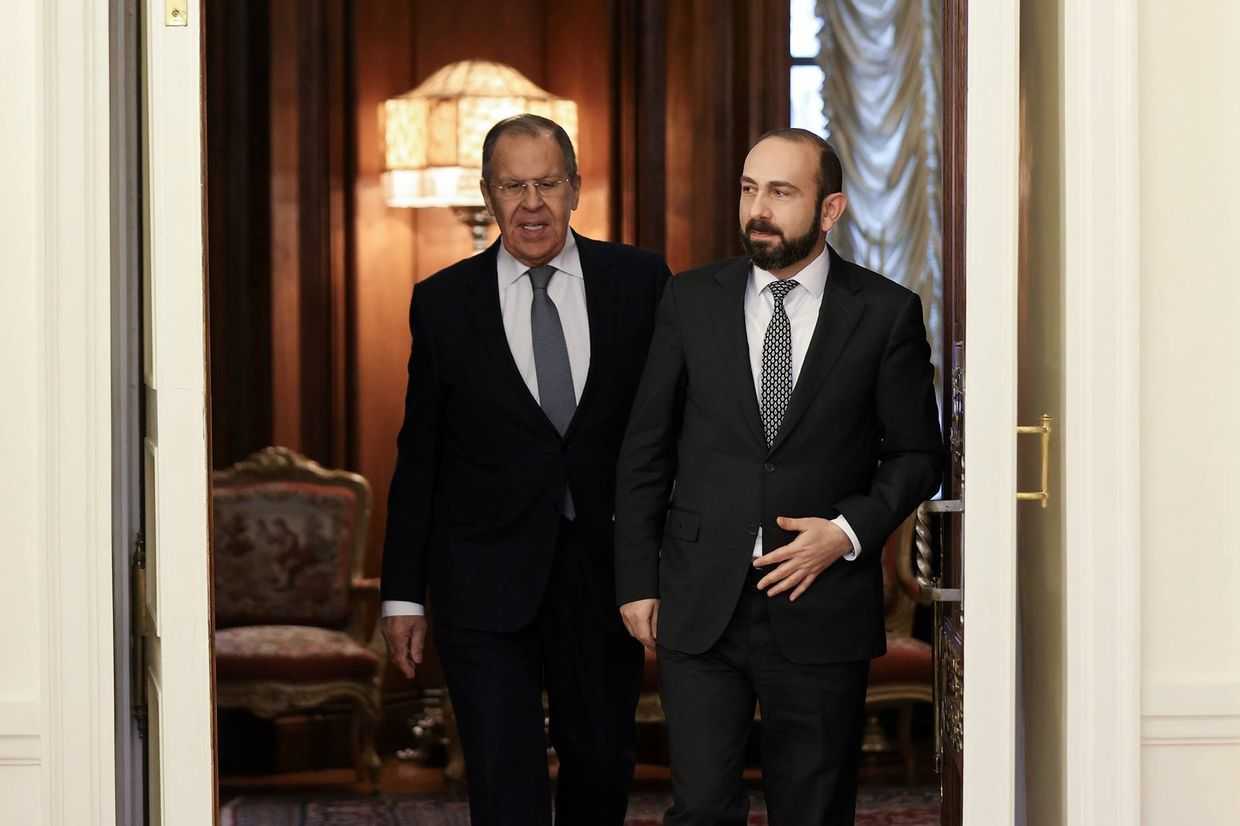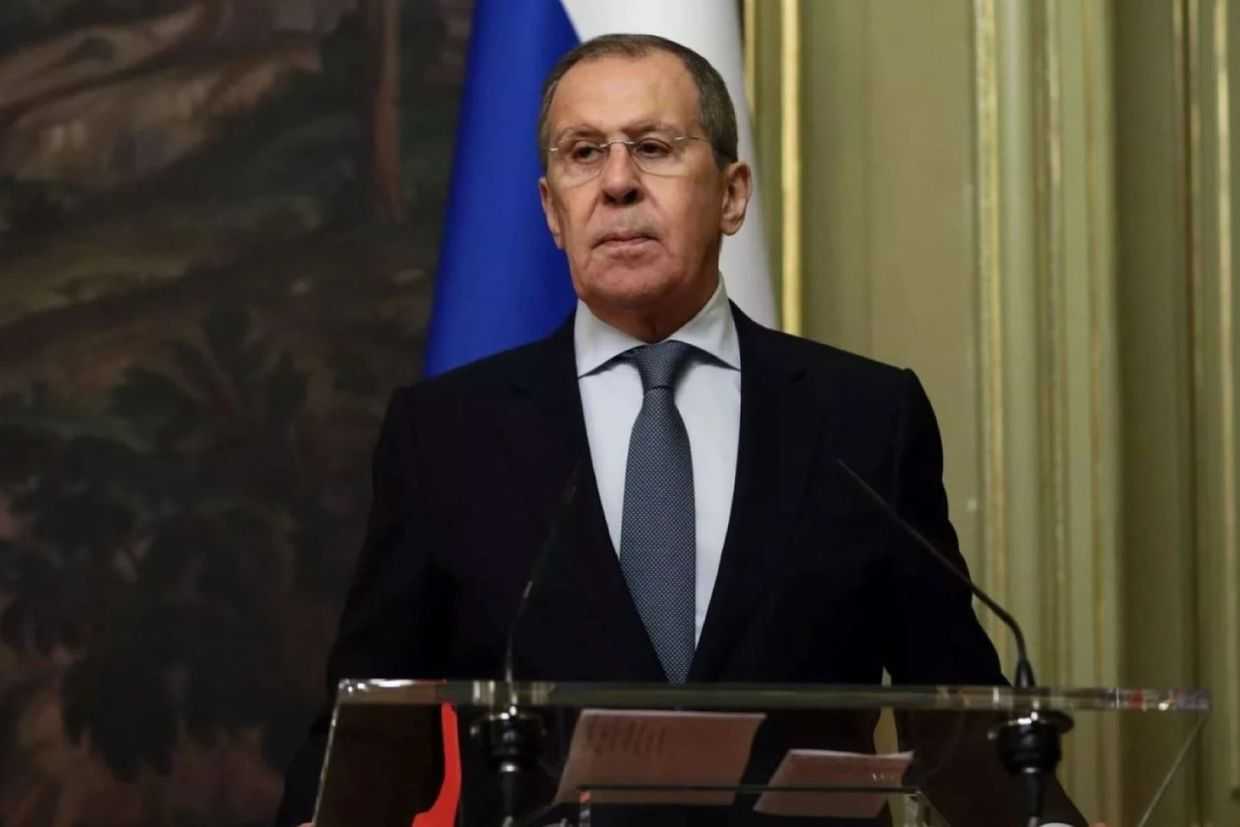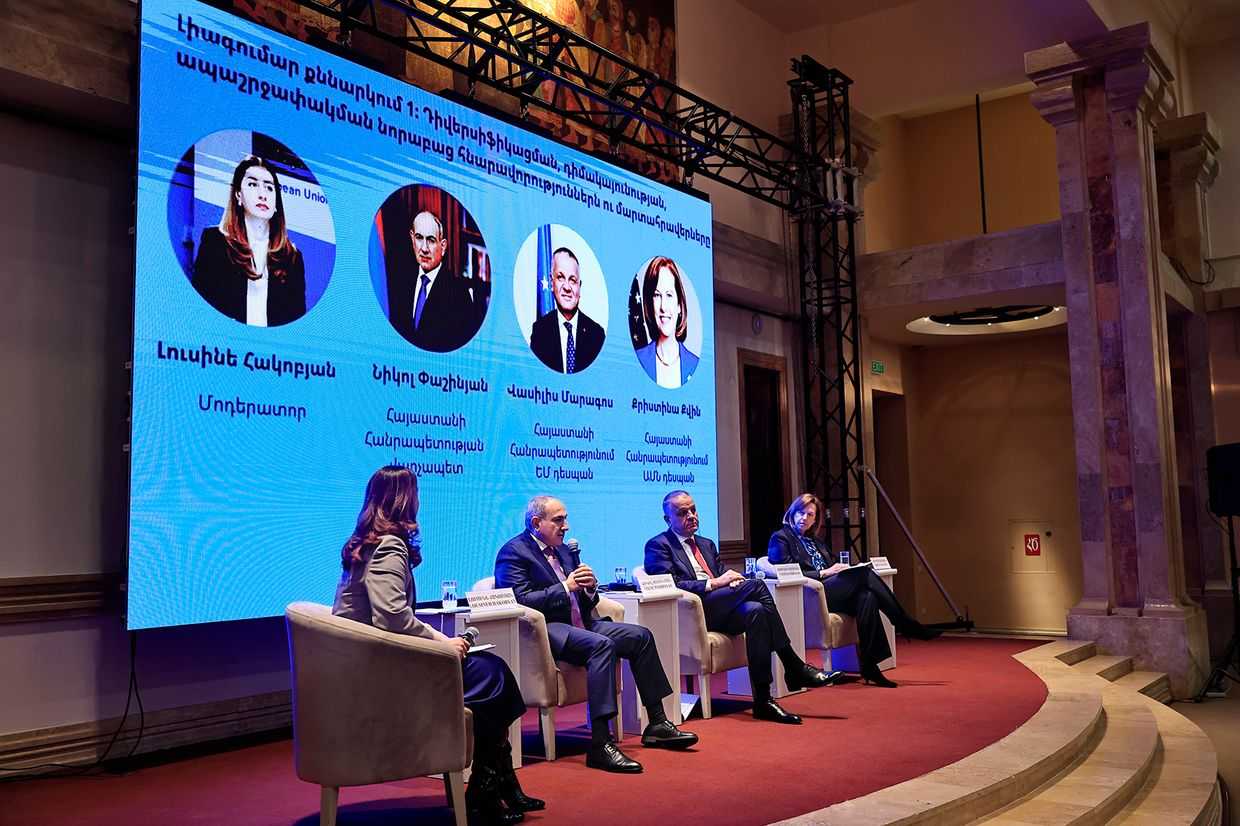
On Wednesday, a draft law supporting Armenia’s prospective EU membership bid passed its first reading in the Armenian Parliament.
The bill passed with 63 votes in favour and seven against.
The seven MPs who voted against the draft law belonged to the I Have Honour opposition bloc. Armenia’s largest opposition faction, the Armenia Alliance, did not participate in the vote.
The bill was drafted after the Central Election Commission verified that a petition to initiate a draft law regarding Armenia’s prospective membership in the EU gathered 50,000 signatures.
It was approved by the Armenian government during a cabinet meeting in early January, with Prime Minister Nikol Pashinyan saying that after parliament adopts it as a law, a discussion must take place between Armenia and the EU to develop a roadmap toward accession.
Pashinyan said that adopting the law ‘doesn’t literally mean Armenia is joining the EU’ and that ‘making a decision on that point can only be made through a referendum, there is no other option.’
The government’s approval of the bill led to a swift and sarcastic reaction from Russia.

Since January, high-ranking Russian officials have repeatedly talked about the incompatibility of the EU with the Eurasian Economic Union [EAEU]. The issue was touched upon during the recent call between Pashinyan and Russian President Vladimir Putin, with Putin offering ‘his comments and assessments’ on the matter.
Armenian officials have also said that they were not ‘thinking about replacing the EAEU’.
However during the discussion of the draft law in the parliament, Arman Yeghoyan, the Chair of the Parliamentary Committee on European Integration Affairs, said that if Armenia were to sign a free trade agreement with the EU, ‘the day it takes effect, Armenia would no longer be able to be a member of the Eurasian Economic Union’.
‘There’s a huge gap between our political closeness and economic cooperation [with the EU] and I think we should fill that gap. Naturally, not at the expense of reducing political dialogue but increasing economic cooperation’, Yeghoyan said.
This week, the first EU expert mission arrived in Armenia to discuss the development of a visa liberalisation act. On Wednesday, as the mission continued its work on the ground, the Armenian National Security Service announced that it was investigating a case of illegal migration to Europe ‘in exchange for €3,300 ($3,400), by presenting a false document and false information’.
On Wednesday, Kremlin press secretary Dmitry Peskov said that it was ‘Armenia’s sovereign right’ to pursue EU membership, and suggested that Armenians should ‘figure out to what extent this is a mutual desire, and how the Europeans themselves feel about this’.
Earlier this week, Russian Deputy Foreign Minister Mikhail Galuzin claimed in an interview with Izvestia that the EU was ‘demanding political loyalty from Armenia and its accession to anti-Russian sanctions’ without ‘making any promises or taking any serious decisions in terms of visa-free relations’.
Armenia and the EU launched their visa liberalisation dialogue in September 2024.











